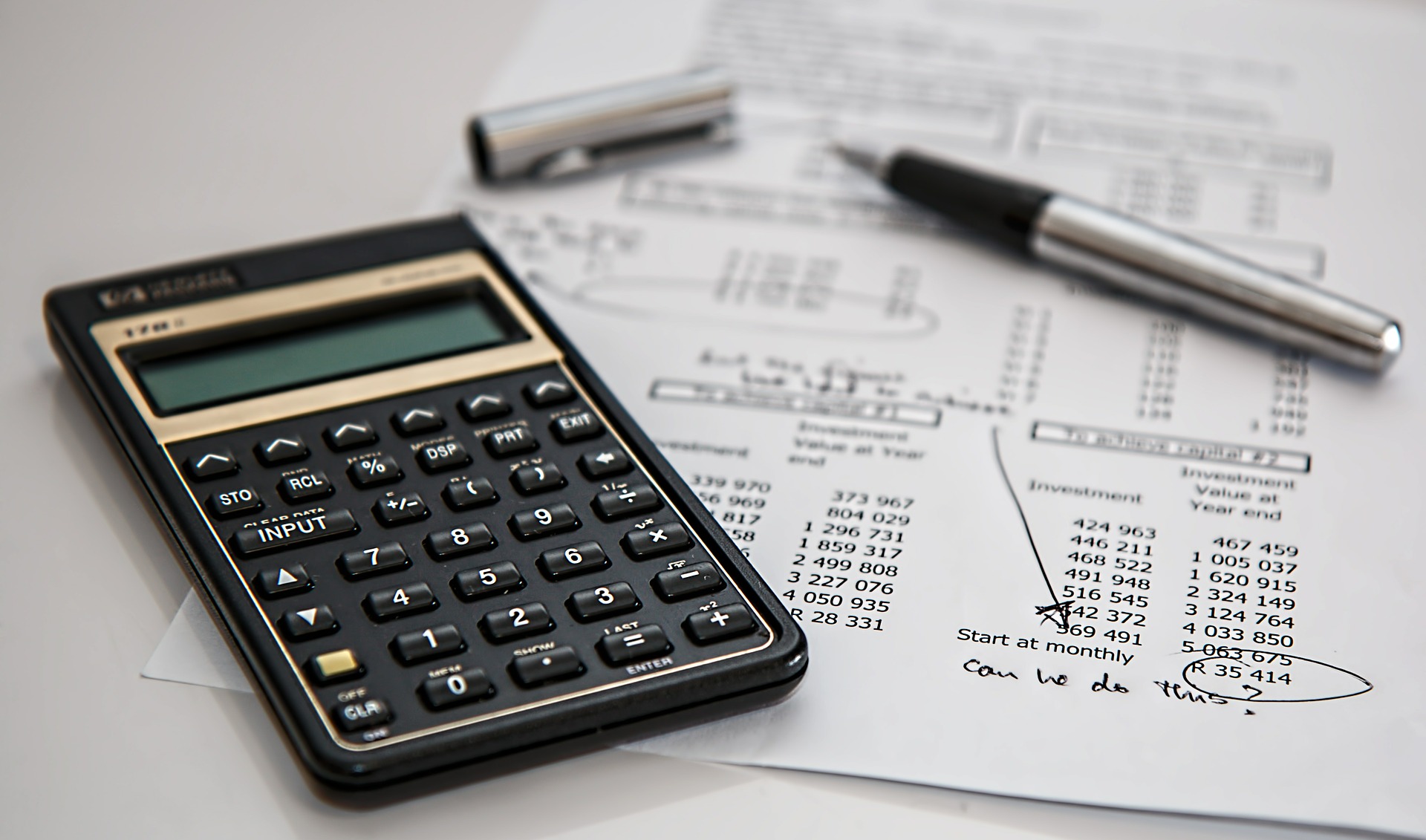A household budget strategy can be one of the best tools available to map out goals for your family.
It allows a family to follow a set of organized and generalized financial rules for certain areas of their lives where they spend money and how much money to spend in those areas.
One goal might be to pay off credit card debt while another goal for someone else might be to save for a house down payment.
As such, no two budgets are the same. They all vary based on those goals.
From time to time, it’s always good to review your household budget strategy and compare actual expenses to your budget to see how close in alignment those expenses are.
Below are 10 signs to change your household budget strategy.
Household Budget Strategy Analysis: When to Change it
1. Deficit-Spending Each Month
If you are ending the money with less money than when you started, then you should revise your household budget strategy and take a deeper look at where the excessive spending came from and why.

If you don’t have a budget in place yet, be sure to read up on how to create a budget for your household.
Having a budget in place will quickly assist you in analyzing these purchases and excessive spending actions.
Was it a one-time extra expense? If so, maybe you need to put more into your emergency fund.
Basically you want to be able to take a quick look at a 30-day period and look at how much all of your expenses totaled.
This is one of the quickest and simplest ways to see if you are overspending.
Most bills, such as your mortgage or rent, utilities, car payment, phone, and internet service all bill in 30 day increments.
You will also have the same number of paychecks (although if you are paid bi-weekly there are two months where you will get 3 paychecks in a month) for the most part.
Although in leap years then there are small variances in pay as well but if you are paid bi-weekly the majority of the time is you receive two paychecks per month.
There are programs like mint.com that will track your spending or you can also use a personal finance flowchart to see where your money is actually going.
Deficit spending each month is a sure sign to revisit your household budget strategy.
2. Using Credit Cards for Purchases

If you have to use credit cards to get you through the end of the month to cover your expenses, you should sit down and address why this is happening.
You will need to sit down and look at what your charge card expenses are and take corrective action immediately.
While a lot of people do use credit cards correctly for cash back rewards, a lot of people do not.
If you are using credit cards because you are out of money, you need to revisit your household budget strategy ASAP.
Using credit cards is not a good long-term solution for purchases if you cannot afford the payments.
Many of these credit card companies charge upwards of 18%+ interest so this problem will snowball quickly.
Therefore, many household liabilities are charged that cannot be covered with current monthly income.
3. Your Income Changes
When times are good, they are good and when times are bad they are bad.
Income changes can throw off your household budget strategy.
If you find yourself subject to an income loss, it is essential to sit down and look at your budget to see where you can make that reduction within your spending.
Now if you are on the opposite side and find yourself with a fairly large income increase, look at your budget and put more towards saving.
As a nation, the average Joe is saving less than 5% of their disposable income. That is not nearly enough to cover serious emergencies such as a medical or if an accident were to occur.
Saving should be part of your household budget strategy to cover emergencies as they arise.
4. You Have a Major Lifestyle Change
Maybe you have found the love of your life and want to be together until the end of time.
Yes, this would affect your budget and household budget strategy.
This would be a big financial adjustment that you will need to talk through with your partner.
- Are you going to keep your finances separate or merge everything into one account?
- Will you be covering your partner’s past liabilities if your partner were to stop working?
You will have to make joint decisions on these issues as they impact your household budget strategy.
Or maybe you decide to have a family and there will only be one income earner now for the household.
Perhaps one partner decides to dabble in real estate investing. How does becoming married affect real estate finance and your taxes?
Again, these decisions have HUGE financial changes on a household budget strategy.
The key to this situation is to make sure you review your proposed budget often, going back over and comparing actual expenses to budgeted ones, and make adjustments if necessary.
5. Family Goals Have Changed
Having financial goals in place will often drive family household budget strategies.
Determining your financial goals will dictate your household budget strategy and the priorities you will make.
Having financial priorities is necessary for all aspects of creating and following a budget.
- Maybe you and your new spouse have decided that cold, brutal, pothole-ridden Midwestern winters are not in your future anymore and decide to relocate to somewhere less populated and warmer.
- Perhaps there is also a cheaper cost of living so your budget can be modified since housing will be significantly less where you are moving to.
- Or better yet, maybe you have decided to live it up in a used RV and don’t really have much housing expense now then compared to your Jones Lifestyle and McMansion you used to have.
These would all have profound effects on your household budget strategy.
However, being able to quickly readjust your household budget strategy based on changing financial goals is one of the best reasons to use a budget.
Since you have a household budget strategy in place, you are able to make quick monthly adjustments to achieve these changing family financial goals.
You can make reductions or cuts in one area, such as discretionary spending, and redirect that money to be put towards your new financial goals.
6. One Large Purchase Blows Your Budget
If you are planning to go away with your significant other on a vacation somewhere and the cost of the plane ticket throws your budget deep into the bowels of fiscal insolvency for the month, take note.
This would be a sign that you need to take a hard look at your household budget strategy.
Perhaps start allocating more to your emergency fund.
Financial experts say that households should have three to six months of living expense income saved in their emergency fund.
Learn how to budget your money and make sure that you have an adequate emergency fund in place.
Being able to say your family has an adequate emergency fund established, will help you sleep better at night.
You will be prepared for any emergency that is thrown your way.
For example, if something drastic like a job loss or one of the household income earners has to take a leave from work, you might not be able to cover that lost income.
By having an emergency fund in place with adequate financial reserves, you will have enough money to keep you fiscally solvent for a while.
Your household budget strategy should have safeguards in place to handle some of these instances.
7. You Start a Side Hustle
Finding creative ways to make money are becoming more and more common in today’s time as a way to help families achieve their financial goals.
This trend of the side hustle is expected to grow in the future.
If an income earner in your household ends up with a side hustle or creates a passive income stream, yes this will affect your budget.
You will have to communicate with your partner on what to do with the additional income.
In theory, if you have a solid budget and strategy that spells out how to achieve your financial goals then the decision will not be that hard.
You should use the money in whatever way will be able to assist in achieving that financial goal.
That is the end game; achieving that financial goal.
8. Achieving a Financial Goal
Congratulations! If you have achieved a financial goal, you will want to revisit and reallocate your current household budget strategy.
Since you have completed your goals, you will have extra income available now that is no longer needed for achieving those goals.
You can come up with a new goal, or simply put this additional income into a savings account or use it to build up an emergency fund.
There are tons of options on what to do with the extra money.
Some suggestions would be to start up a vacation fund.
I mean who doesn’t want to vacation on a tropical island and sit on a beach?!
Hey, it’s 5:00 somewhere!
Maybe starting a college fund for your kids could be a goal as well.
Or you could start to work on building household wealth.
Take a look at my article on the 3 necessary steps for building wealth in your household.
9. Increasing Your Retirement Contribution
You see the headlines almost daily stating save more for retirement and one day you decide that you want to start doing this.
I recently revised my monthly budget to do this for myself.
Years ago I was featured in a major metropolitan area with the caption about saving money for retirement.
You can read about it here “26 Year Old Can Retire at 50; Build $23M Nest Egg.”
Sadly, I dropped the ball on this due to the uncertainty of life itself, but now I have taken up a vow to rebuild my retirement riches war chest which I am doing full speed ahead.
However, carving out a large section in your monthly budget to allocate for retirement does take some serious planning and is one of the biggest impacts that can be made.
Revisiting your household budget strategy is the key to making it possible.
10. Financial Anxiety Consumes You
If you find yourself up at night with a head full of financial anxiety and worry, it would be a good time to revisit your household budget strategy and take a look at the numbers.
Find out what the number one worry is that is keeping you up all hours of the night and find a way to address it.
If your worry is not being able to pay your monthly credit card bills, then consider reallocating your monthly budget so you don’t eat out as much and use that money to pay your credit cards.
Or, if you decide you need to start saving more for retirement, consider not replacing your clothes as fast with new ones.
Perhaps you should also organize your household to save money as well.
You could also pick up some used clothes at a consignment shop that sometimes are a fraction of the price of new ones.
I conducted a household spending audit and came up with a list of 21 things I stopped buying which allowed me to save over $10,000 per year!
The bottom line, there is always a way to address whatever the worry is that is keeping you up at night.
Household Budget Strategy Decisions
Working with your household budget strategy can always be a challenge.
You will have to make tough decisions when it comes to making changes to your household budget strategy.
It is often subject to a lot of variations and can sometimes be a bumpy ride to get to your financial goal at the end.
Achieving financial goals rely heavily on communication between all household income providers.
Evaluate these ten signs in your household budget strategy to see if they are present and implement some of the recommendations above.
Also be sure to check out our budgeting tips and tricks and incorporate those into your budget strategy.
In the end, once your financial goals are achieved, you will know that the struggle and sacrifice to get there was really worth it.
Related Article: Housing Cooperative Riches: Saving $308,000 Living with Seniors
HOW IS YOUR HOUSEHOLD BUDGET STRATEGY WORKING?
LIKE THIS ARTICLE? CONSIDER PINNING IT!





Leave a Reply